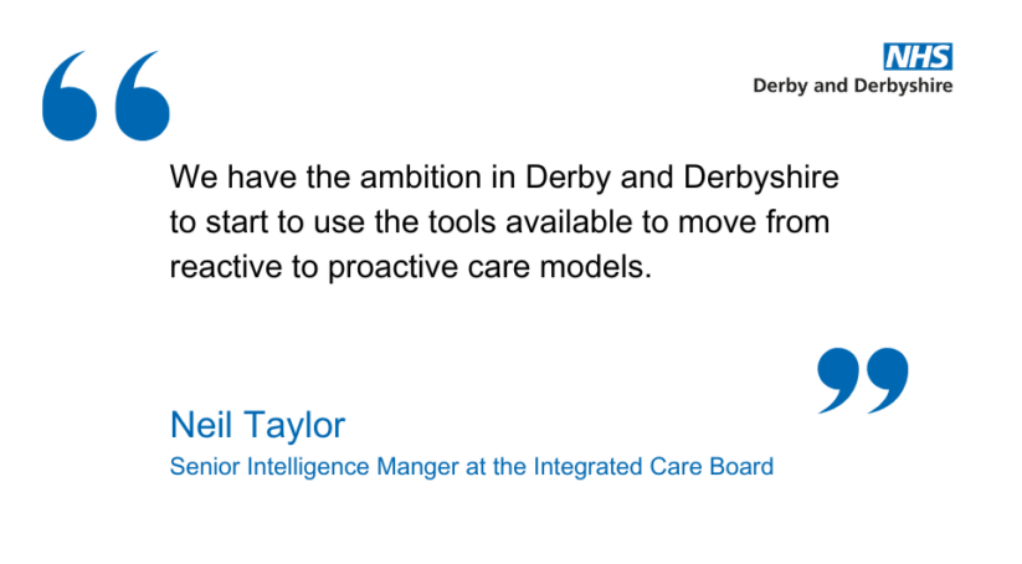Blog: “Data-led decision making is the driving force behind our commissioning” – NHS analysts can support colleagues to make use of state-of-the-art tech
By Neil Taylor, Senior Intelligence Manger at the Integrated Care Board
The role of analysts in health and social care is changing.
For a long time, we have been working in the background on a range of dashboards evaluating key metrics against our system’s delivery.
But now there is a movement which recognises data-led decision making as the driving force behind all service commissioning.
And with state-of the-art technology in collaboration with system working the opportunities are vast.
Mirroring a key theme of the Darzi report, we have the ambition in Derby and Derbyshire to start to use the tools available to move from reactive to proactive care models.
Using co-production models with populations to understand their needs and bringing this insight together with the integrated care system’s key metrics will give us a holistic view to work with.
The business intelligence team at Derby and Derbyshire Integrated Care Board has a business intelligence team of twelve and we also lead an intelligence function known as the System Intelligence Group which brings together analysts from ICS partners.
We aim to ensure the data we have is collected accurately and then widely used to inform service improvement.
We have access to a lot of national and local data flows that can be used to a range of reports and below are just some of the key tools we could encourage end users to use:
- RAIDR – this gives a quick snapshot of data such as in and outpatients and A&E attendances, prescribing and primary care data as well as quality and performance data and a population health dashboard. Commissioners and contractors can view this for a quick summary of information and primary care colleagues can identify individual patients who might benefit from enhanced care.
- Periscope – this is a new tool, the ICB has developed and is launching in November. This will provide a dashboard to show our performance against key indicators including 52 week waits, cancer diagnosis and treatment and A&E turnaround.
- Power BI dashboards – this tool allows us to share key data within the ICB and primary care.
- National systems such as the NHS futures, model health.
The partnership working ICSs have created and the availability of top of the range tools mean it is an exciting time for analysts in health and care.
We’re working hard to consider how tools such as the above and the recently mobilised Federated Data Platform might help us look more easily at our population’s health and address health inequalities, especially the Core20Pus5 groups, ideally using a population health management approach.
By developing what we call a ‘linked dataset’, the aim is to see a patient’s pathway from where they enter the NHS and social care system to where they leave and the important touchpoints on that journey.
This helps us learn from those experiences and design services more effectively in future. In time it could also help us predict who the next groups of high-risk patients might be and offer them preventative care or support even sooner. We also want and need to agree local data flows for social care and general practice in our future work.
The tools we currently have at our disposal can be widely used by primary care and our ICB colleagues and as a team we are very happy to support their use.
We can do so much with what we’ve already got – so if you’re working in health and care within the ICB or primary care come and talk to us and we will support your goals.
For ICB colleagues, all new requests for data and analytical support should be submitted via the online form accessible here or directed to DDICB.DerbyshireBI@nhs.net.
If you wish to provide anonymous feedback regarding the information or service you have received, please use this link to complete a brief 2 minute survey.

